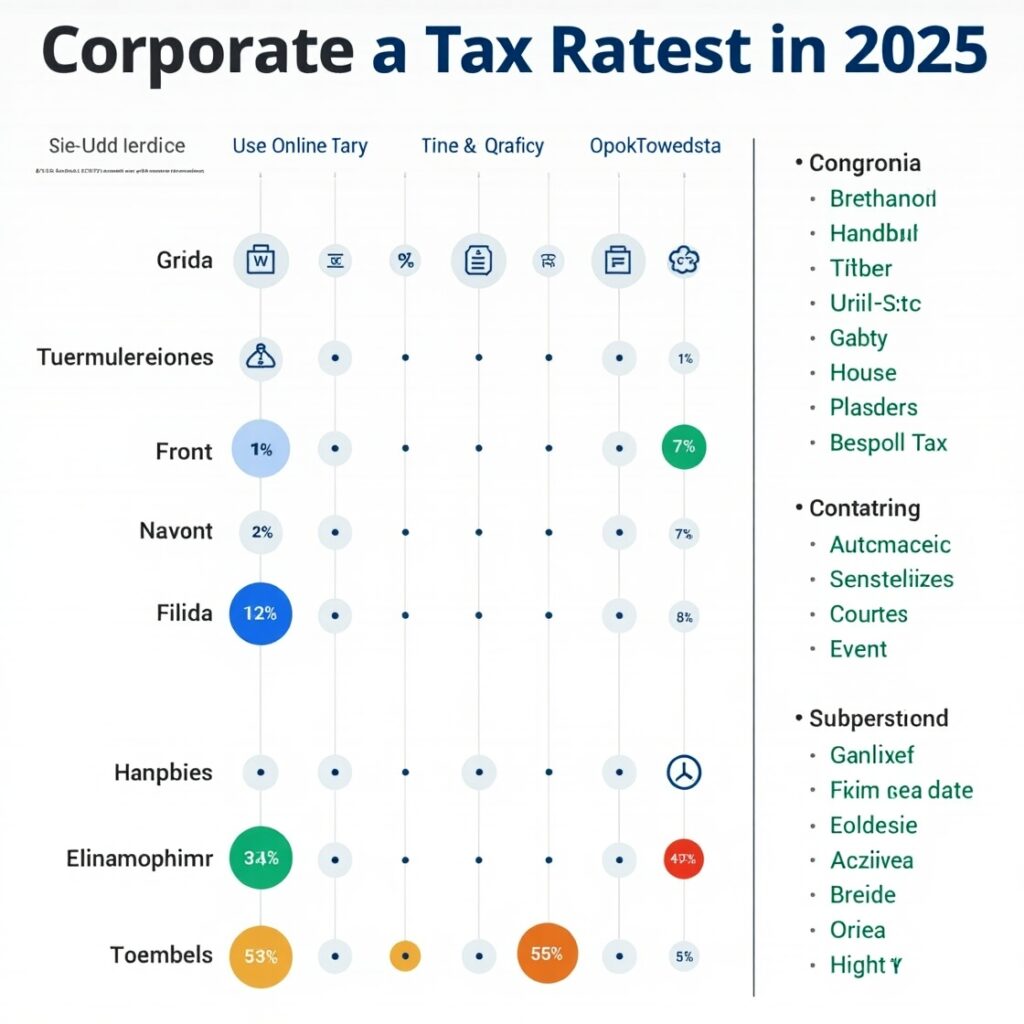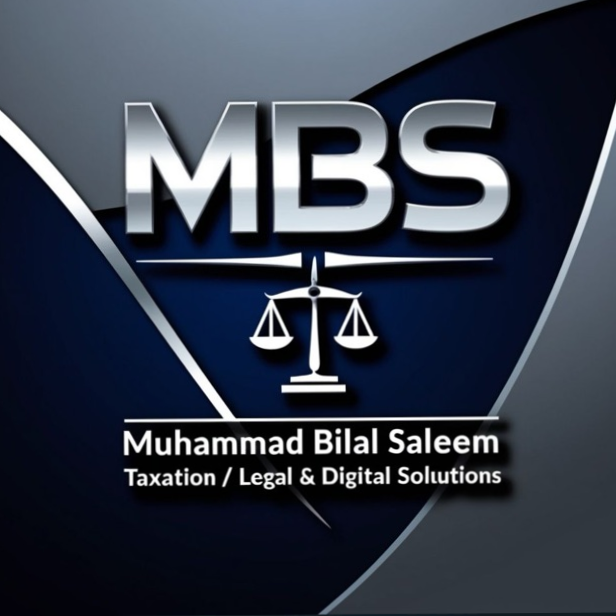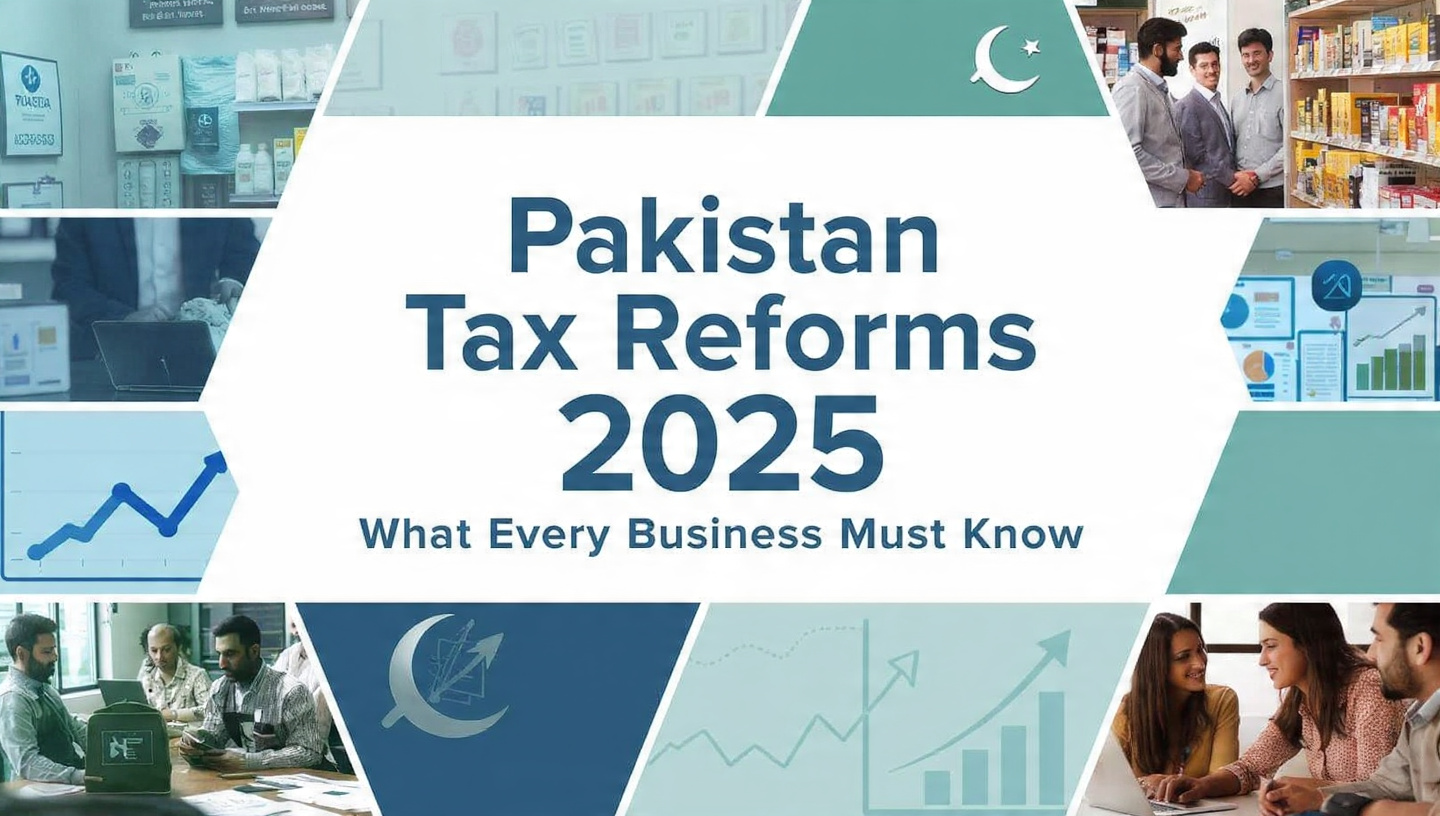
Corporate tax filing is a mandatory process for all registered companies in Pakistan. It ensures compliance with legal requirements, financial transparency, and access to government incentives. For 2025, the Federal Board of Revenue (FBR) continues to streamline the process through its digital IRIS portal, making it easier for companies to file returns, calculate taxes, and manage payments efficiently.
This guide provides a detailed breakdown of the corporate tax filing process in Pakistan, including required documents, step-by-step instructions, sector-specific rules, case examples, compliance strategies, and an extended FAQ section.
1. Introduction to Corporate Tax:
Corporate Tax Filing Process in Pakistan 2025 – Extended Guide
Corporate tax is a direct tax levied on the net income of registered companies in Pakistan. All entities registered under the Companies Act must comply with corporate tax regulations and file their returns annually. The corporate tax system ensures proper revenue collection for the government while providing opportunities for companies to claim deductions, credits, and incentives.
2. Importance of Timely Filing:
Corporate Tax Filing Process in Pakistan 2025 – Extended Guide
Timely filing of corporate tax returns helps companies avoid penalties, maintains their inclusion in the Active Taxpayer List (ATL), and ensures eligibility for government incentives. Late filing may lead to surcharges and increased scrutiny from tax authorities.
3. Types of Companies Required to File:
Corporate Tax Filing Process in Pakistan 2025 – Extended Guide
All SECP-registered companies must file tax returns, including private limited companies, public limited companies, banks, insurance companies, non-profit organizations, and foreign companies operating in Pakistan. Every registered entity, regardless of profit or size, is required to file.
4. Corporate Tax Rates in 2025:
Corporate Tax Filing Process in Pakistan 2025 – Extended Guide

Corporate tax rates vary by company type. Public companies have a progressive rate, private limited companies have slightly lower rates, banks and financial institutions face higher rates, and small companies with lower revenue may qualify for reduced rates. Understanding the applicable rate is crucial for accurate calculations.
Corporate Tax Filing Process in Pakistan 2025 – Extended Guide
5. Required Documentation:
Corporate Tax Filing Process in Pakistan 2025 – Extended Guide
Companies must prepare the following documents: NTN certificate, company registration certificate, audited financial statements, bank statements, withholding tax certificates, previous tax records, and memorandum and articles of association. Proper documentation ensures smooth filing and verification.
6. Registration on IRIS Portal:
Corporate Tax Filing Process in Pakistan 2025 – Extended Guide
The FBR IRIS portal is mandatory for all corporate tax filings. Companies must register with their NTN, update contact information, and select the income tax return for the relevant year. Proper registration ensures access to all filing and payment features online.
Corporate Tax Filing Process in Pakistan 2025 – Extended Guide
7. Preparing Financial Statements:
Corporate Tax Filing Process in Pakistan 2025 – Extended Guide
Accurate financial statements including profit and loss accounts, balance sheets, and cash flow statements are essential. Audited financial statements provide credibility and help in calculating allowable expenses and taxable income correctly.
Corporate Tax Filing Process in Pakistan 2025 – Extended Guide
8. Calculating Taxable Income:
Corporate Tax Filing Process in Pakistan 2025 – Extended Guide
Taxable income is calculated by subtracting allowable expenses and deductions from gross income. Allowable expenses include salaries, rent, utilities, depreciation, donations, and research and development costs. Accurate calculations minimize errors and reduce the risk of penalties.
9. Identifying Allowable Deductions:
Corporate Tax Filing Process in Pakistan 2025 – Extended Guide
Companies can claim deductions for eligible donations, employee benefits, capital expenditures, and R&D investments. Maintaining proper records and receipts is critical for verifying these deductions during audits.
10. Selection of Correct Tax Form:
Corporate Tax Filing Process in Pakistan 2025 – Extended Guidev
Most companies use Form C. Special sectors like banks, insurance, telecom, and oil and gas require specific forms. Selecting the correct form avoids rejection and ensures proper reporting.
11. Entering Income Details:
Corporate Tax Filing Process in Pakistan 2025 – Extended Guide
Companies must provide detailed income information, including business revenue, rental income, capital gains, and foreign income if applicable. Each entry must be backed by documentation to ensure accurate reporting.
12. Entering Deductions and Credits:
Corporate Tax Filing Process in Pakistan 2025 – Extended Guide

Deductions and credits must be carefully entered, including charitable donations, depreciation, tax credits, and any export incentives. Accurate entry ensures the correct calculation of tax liability.
13. Withholding Tax Reporting:
Corporate Tax Filing Process in Pakistan 2025 – Extended Guide
Withholding taxes deducted by banks, clients, or other sources must be reported. Reconciliation with actual certificates avoids discrepancies and penalties.
14. Reviewing Tax Calculation:
Corporate Tax Filing Process in Pakistan 2025 – Extended Guide
The IRIS system automatically calculates tax liability. Companies should review this calculation against their own records to ensure correctness and prevent disputes with FBR.
15. Submission of Tax Return:
Corporate Tax Filing Process in Pakistan 2025 – Extended Guide
After reviewing all details, companies can submit their tax return online. Downloading the acknowledgment receipt provides proof of submission and is necessary for future references.
16. Payment of Remaining Tax:
Corporate Tax Filing Process in Pakistan 2025 – Extended Guide
If tax due exceeds taxes already paid, companies must generate a PSID and make the payment via online banking, ATM, or designated bank branches. Entering the payment reference in IRIS completes the process.
Corporate Tax Filing Process in Pakistan 2025 – Extended Guide
17. Maintaining Records:
Corporate Tax Filing Process in Pakistan 2025 – Extended Guide

Companies must maintain all financial records, tax certificates, receipts, and acknowledgment slips for at least six years. This ensures compliance during audits and verification requests.
18. Post-Filing Compliance:
Corporate Tax Filing Process in Pakistan 2025 – Extended Guide
Companies should respond promptly to any FBR notices, submit audit reports if required, and monitor their ATL status. Maintaining proper documentation and records ensures compliance for the following year.
19. Benefits of Compliance:
Corporate Tax Filing Process in Pakistan 2025 – Extended Guide
“Corporate Tax Filing Pakistan: Process in 2025 – Extended Guide”
Timely and accurate compliance helps companies avoid penalties, maintain inclusion in ATL, improve credibility with banks and investors, and become eligible for tax refunds and government incentives.
20. Common Challenges in Filing:
Corporate Tax Filing Process in Pakistan 2025 – Extended Guide

Challenges include missing documents, wrong form selection, delayed filing, errors in deductions, and withholding tax mismatches. Planning, digital record-keeping, and consulting professionals can mitigate these challenges.
21. Solutions to Common Challenges:
Corporate Tax Filing Process in Pakistan 2025 – Extended Guide
Maintaining digital records, consulting a tax advisor, preparing in advance, reconciling bank accounts, and reviewing withholding tax certificates helps companies av
oid common pitfalls.
22. Sector-Specific Filing Considerations:
Corporate Tax Filing Process in Pakistan 2025 – Extended Guide
Banks, insurance, telecom, oil and gas, and export companies may have unique tax rules. Awareness of sector-specific requirements ensures accurate filing and prevents penalties.
23. Audit Requirements:
Corporate Tax Filing Process in Pakistan 2025 – Extended Guide
Companies exceeding certain threshCorporate Tax Filing Process in Pakistan 2025 – Extended Guideolds must submit audited financial statements. Audits verify income, expenses, and deductions, and provide credibility to the tax filing process.
24. Tax Planning Strategies:
Corporate Tax Filing Process in Pakistan 2025 – Extended Guide
“Corporate Tax Filing Pakistan: Process in 2025 – Extended Guide”
Proper tax planning involves forecasting income, identifying eligible deductions, optimizing credits, and timing expenses. Effective planning reduces tax liability while maintaining compliance.
25. Case Studies:
Corporate Tax Filing Process in Pakistan 2025 – Extended Guide
Realistic examples of private limited companies, banks, and small businesses help illustrate the filing process, common challenges, and practical solutions for 2025 corporate tax filing.
26. Errors and Corrections:
Corporate Tax Filing Process in Pakistan 2025 – Extended Guide
Mistakes in filing can be corrected by submitting a revised return in IRIS within 30 days of the original submission. Proper documentation ensures that corrections are accepted without penalties.
27. Using IRIS Portal Effectively:
Corporate Tax Filing Process in Pakistan 2025 – Extended Guide

Familiarity with IRIS features such as draft filing, payment generation, acknowledgment download, and status checking improves efficiency and reduces errors.
28. Advanced Compliance Tips:
Corporate Tax Filing Process in Pakistan 2025 – Extended Guide
Companies should maintain consistent bookkeeping, reconcile financial statements, track tax credits, review withholding tax, and consult professionals for complex transactions.
29. Extended FAQ:
Corporate Tax Filing Process in Pakistan 2025 – Extended Guide
Frequently asked questions cover deadlines, penalties, foreign income, loss carry-forward, sector-specific rules, documentation, verification methods, and error corrections.
30. Conclusion:
“Corporate Tax Filing Pakistan: Process in 2025 – Extended Guide”
Corporate tax filing in Pakistan 2025 is a critical process that requires careful preparation, accurate documentation, and timely submission through the IRIS portal. Compliance strengthens financial credibility, ensures eligibility for incentives, and helps avoid penalties. Companies that maintain detailed records, plan taxes effectively, and consult professionals when needed are better positioned for successful filing and long-term growth.
Contact Us:
Corporate Tax Filing Process in Pakistan 2025 – Extended Guide
Follow us on social media for updates, tips, and tax humor:
- Facebook: MBS Taxation
- Website: MBS Taxation
- Our Website Contact Form: Click Here
- Whatsapp Number: +923087543324
We’re here to simplify your taxes so you can focus on what matters most—your work, business, and life!
FAQ:
Q1: What is the deadline for filing corporate tax returns in 2025?
The deadline is usually four months after the end of the company’s financial year. For example, if a company’s year ends on June 30, 2025, the filing deadline is October 31, 2025, unless extended by FBR. Late filing can result in penalties and surcharges.




